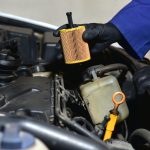The sheer number of options when buying a car, new or used, can be overwhelming. It’s easy to get lost in a sea of choices, each with its appeal and drawbacks. Whether the allure of a brand-new car with its gleaming paint and latest technology calls to you, or the practicality and affordability of a pre-owned vehicle seems more appealing, the ideal choice depends on a lot of factors.
That’s why we’ve created this comprehensive guide to help you navigate the often-confusing world of car buying. We’ll dive deep into the pros and cons of both new and used cars, providing you with the knowledge and insights you need to make an informed decision. Let’s dive in!
The Pros of a New Car
Warranty: Your Safety Net
Think of a brand-new car warranty as a superhero cape, shielding you from unexpected repair bills. Depending on the type of warranty, it covers everything from minor defects in your car’s electrical system to major engine breakdowns, so you can focus on enjoying the open road instead of dreading the next trip to the auto repair shop!
New car warranties typically come in two forms:
- Bumper-to-bumper warranty: This type of warranty covers most components of the car, except for wear-and-tear items like tires and brakes. It usually lasts for three to five years or a certain mileage, whichever comes first.
- Powertrain warranty: This sort of warranty covers the major components of the car’s powertrain, including the engine, transmission, and drivetrain. It typically lasts for five to ten years or has a higher mileage than the bumper-to-bumper warranty.
The beauty of a new car warranty lies in its ability to provide peace of mind. You can drive with confidence, knowing that if something goes wrong with your car due to a manufacturing defect, you won’t be left footing the bill for expensive repairs.
Technology That Wows
New cars are like rolling tech showcases, jam-packed with the latest innovations designed to enhance your driving experience. Modern safety features like lane departure warnings, blind spot monitoring, and automatic emergency braking act as your vigilant co-pilots, helping you avoid accidents and stay safe on the road. Moreover, state-of-the-art infotainment systems turn your car into a mobile entertainment hub, complete with large touchscreens, seamless smartphone integration, and premium audio systems that’ll make your daily commute feel like a concert!
Low Maintenance in the Early Years
New cars are like finely-tuned athletes, primed for peak performance right out of the gate. Thanks to their brand-new, meticulously assembled components, they’re far less prone to the wear and tear that can plague older vehicles. This means fewer unexpected breakdowns and a smoother, worry-free driving experience, especially in their initial years.
In addition to just being equipped with new parts, modern cars are packed with sophisticated onboard diagnostics that act like an early warning system. These systems constantly monitor the vehicle’s health, detecting potential issues before they escalate into major problems. This proactive approach to maintenance saves you both time and money, allowing you to address minor issues before they become costly repairs.
Fuel Efficiency at Its Finest
New cars are designed to take you further on every tank. Advanced technologies like direct injection, turbocharging, and variable valve timing squeeze every ounce of power from each drop of fuel, ensuring you get the most out of every tank. Hybrid and electric options take this a step further, offering the potential to significantly reduce or even eliminate your reliance on fossil fuels, saving you money and reducing environmental impact.
Beyond just the engine, new cars boast sleek, aerodynamic designs that minimize wind resistance. This allows them to glide effortlessly through the air, especially at highway speeds, further boosting fuel efficiency and giving you more miles for your money.
The Cons of a New Car
Depreciation: The Dwindling Value
New cars experience the most dramatic depreciation in their initial years, much like a brand-new smartphone losing a chunk of its value the moment you take it out of the box. This rapid depreciation can be a significant financial hit if you decide to sell or trade in your car within the first few years of ownership.
The depreciation rate varies depending on the make, model, and market conditions, but it’s not uncommon for a new car to lose 20% or more of its value in the first year alone. So, while that new car smell is intoxicating, remember that it comes with a hefty price tag in terms of resale value.
Insurance Costs: The Premium Price Tag
Insuring a new car is generally more expensive than insuring a used one. This is because new cars are more valuable and, therefore, more costly to repair or replace in case of an accident. To add to that, some insurance companies might even insist on comprehensive collision coverage for new cars, pushing those premiums even higher.
So, while it’s crucial to have good insurance to protect your new ride, the higher premiums can put a noticeable dent in your monthly budget – something to keep in mind when weighing the overall cost of owning a new car.
Sticker Price: The Initial Investment
There’s no denying it – new cars come with a hefty price tag. That dream car might seem tantalizingly close, but the reality often involves a hefty down payment or daunting monthly loan installments. Unfortunately, that’s just the start. Once you factor in insurance, maintenance, and its inevitable depreciation, you may quickly realize that your dream car could drain your wallet faster than you’d think.
Before you sign on the dotted line, make sure you’ve crunched the numbers and factored in these long-term costs. Your dream car shouldn’t become a financial nightmare down the road.
The Pros of a Used Car
Lower Cost: The Budget-Friendly Option
Used cars are the champions of affordability. Since they’ve already taken the biggest hit in terms of depreciation, it results in a significantly lower price tag compared to their brand-new counterparts for buyers. This means you can potentially get a higher-end model with more features for the same price as a basic new car – a great way to maximize your budget and get more bang for your buck.
Lower Insurance Costs: A Welcome Relief
When it comes to insurance, age matters – at least for your car. Insurance companies crunch the numbers, looking at factors like a car’s age, value, and repair costs. Since used cars are generally less expensive to fix up or replace, they tend to come with lower insurance premiums. This translates to significant savings over time, giving your wallet a break and leaving you with more cash for gas and maintenance.
Wider Selection: A Car for Every Taste
The used car market is a treasure trove of options. You’ll find a vast selection of makes, models, and years, giving you the freedom to choose a car that perfectly suits your needs, preferences, and budget. Whether you’re looking for a reliable sedan, a spacious SUV, a sporty coupe, or a rugged pickup truck, you’re sure to find something that fits your needs and preferences. The sheer variety of used cars allows you to explore different brands, compare features, and ultimately find the perfect vehicle that matches your lifestyle and personality.
The Cons of a Used Car
No Warranty: The Risk Factor
Unlike new cars, used ones may not come with a warranty, or if they do, they might be limited in scope and duration. This means you’ll be financially responsible for any repairs that arise, which can be a significant burden if unexpected issues pop up.
If the dealership offers a used car warranty, it’s crucial to scrutinize the fine print. Understand what’s covered, for how long, and any exclusions that might apply. Regardless of warranty coverage, it’s wise to factor in potential repair costs when budgeting for a used car. Having a dedicated contingency fund can provide a safety net for those unforeseen expenses, ensuring you’re prepared for whatever the road throws your way. Remember, a little foresight can go a long way in avoiding financial headaches down the line.
Unknown History: The Mystery Box
Buying a used car can feel a bit like opening a mystery box. You might not have the full picture of its past, including any accidents, repairs, or even how well it was cared for. This lack of transparency can lead to unwanted surprises down the line, from unexpected breakdowns to expensive repairs that weren’t on your radar.
With that being said, there are ways to reduce the risk. Start by getting a vehicle history report to uncover any reported accidents or title issues. Then, consider a pre-purchase inspection by a Fixit45 mobile mechanic to give the car a thorough inspection, checking for any hidden problems and giving you a clearer picture of its overall condition. A little due diligence can go a long way in ensuring your used car journey is smooth sailing.
Higher Maintenance Costs: The Aging Factor
Think of your car as your favorite pair of shoes. With every step you take, the soles wear down, the stitching might start to fray, and eventually, you’ll need to get them repaired or even replaced. The same goes for a used car – every mile you drive puts wear and tear on essential components like the engine, transmission, and suspension, which, over time, increases the chances of breakdowns and unexpected malfunctions.
As the car ages and the miles pile up, these maintenance needs become more frequent and potentially more expensive. This is why it’s recommended to budget for these potential costs when considering a used car. Having a financial cushion for unexpected repairs can save you from a major headache and ensure you can keep your car on the road without hurting your wallet.
Finding Your Perfect Match
Choosing between a new or used car isn’t a simple matter of price tags – it’s about finding the perfect blend of features, affordability, and peace of mind that suits your lifestyle. If the allure of the latest technology, that intoxicating new car smell, and the security of a comprehensive warranty make your heart race, then a brand-new car might be your dream come true. On the other hand, if you’re budget-conscious and appreciate the unique character and potential savings of a pre-owned vehicle, a used car could be the perfect fit, even if it means tackling some DIY maintenance from time to time.
No matter which path you choose, remember that regular maintenance is key to keeping your car running smoothly and safely. That’s where Fixit45 steps in, offering expert mobile auto repair services that bring the garage directly to you. From routine oil changes to complex engine repairs, we’ve got you covered. Call +2348061440051 now!






